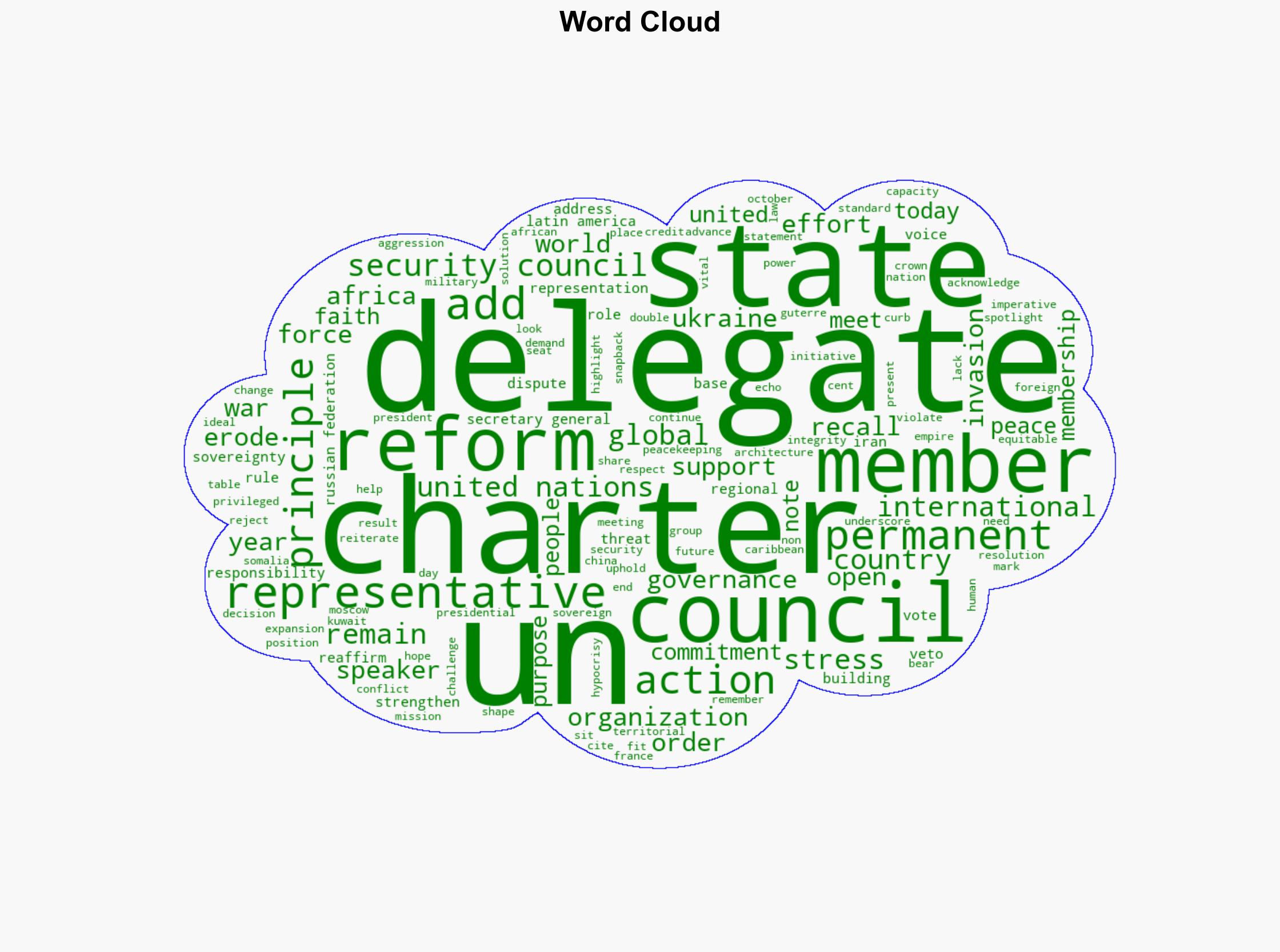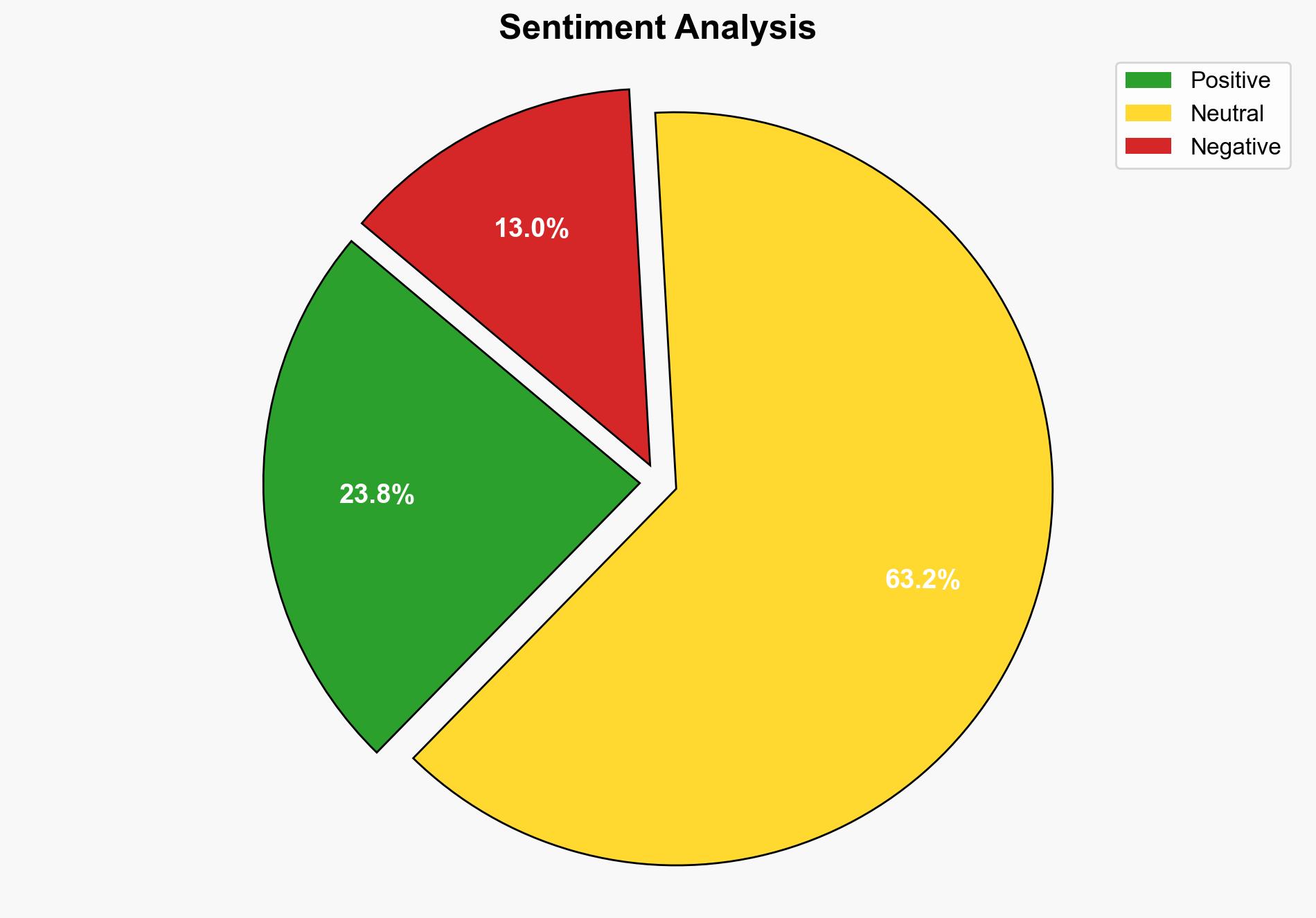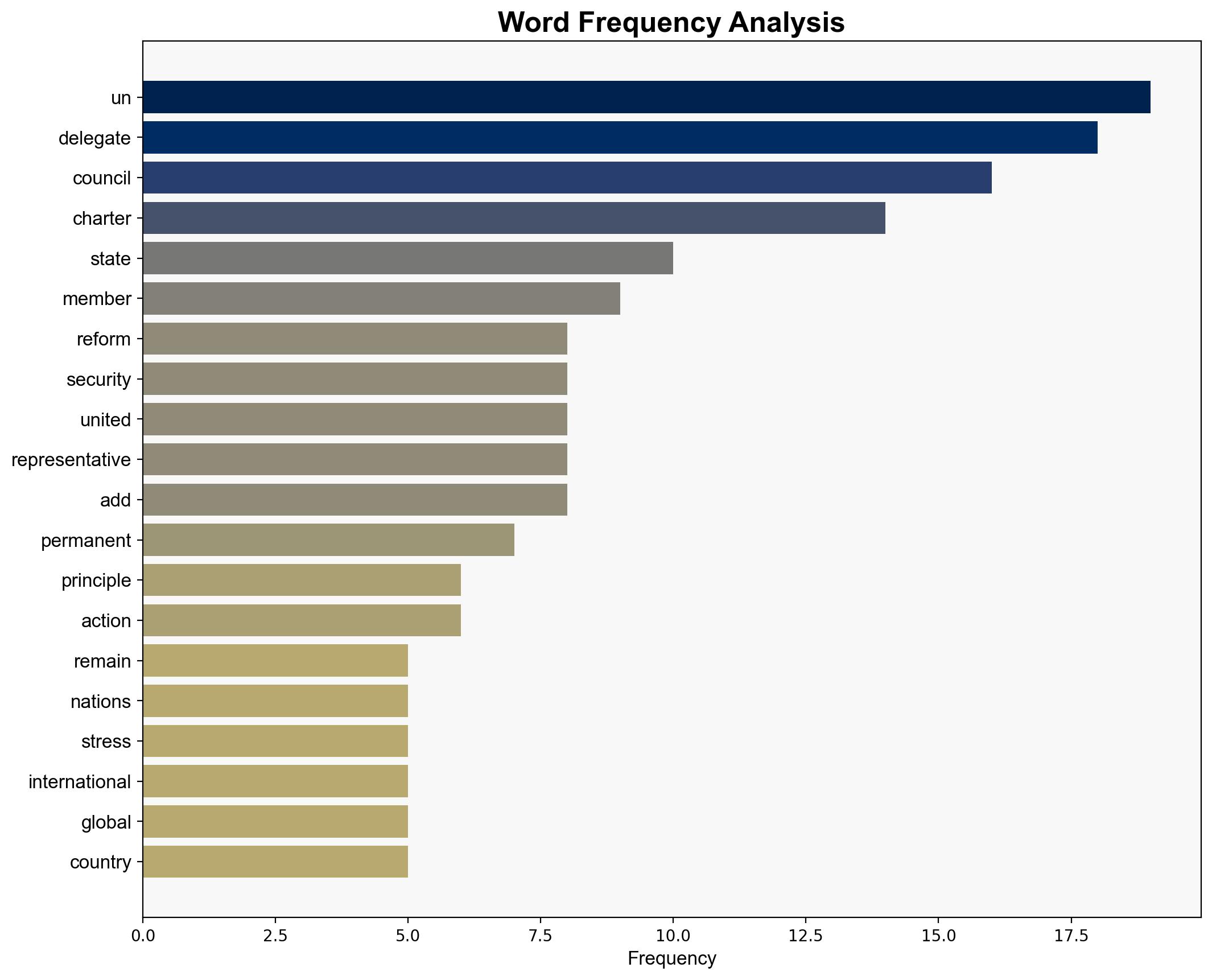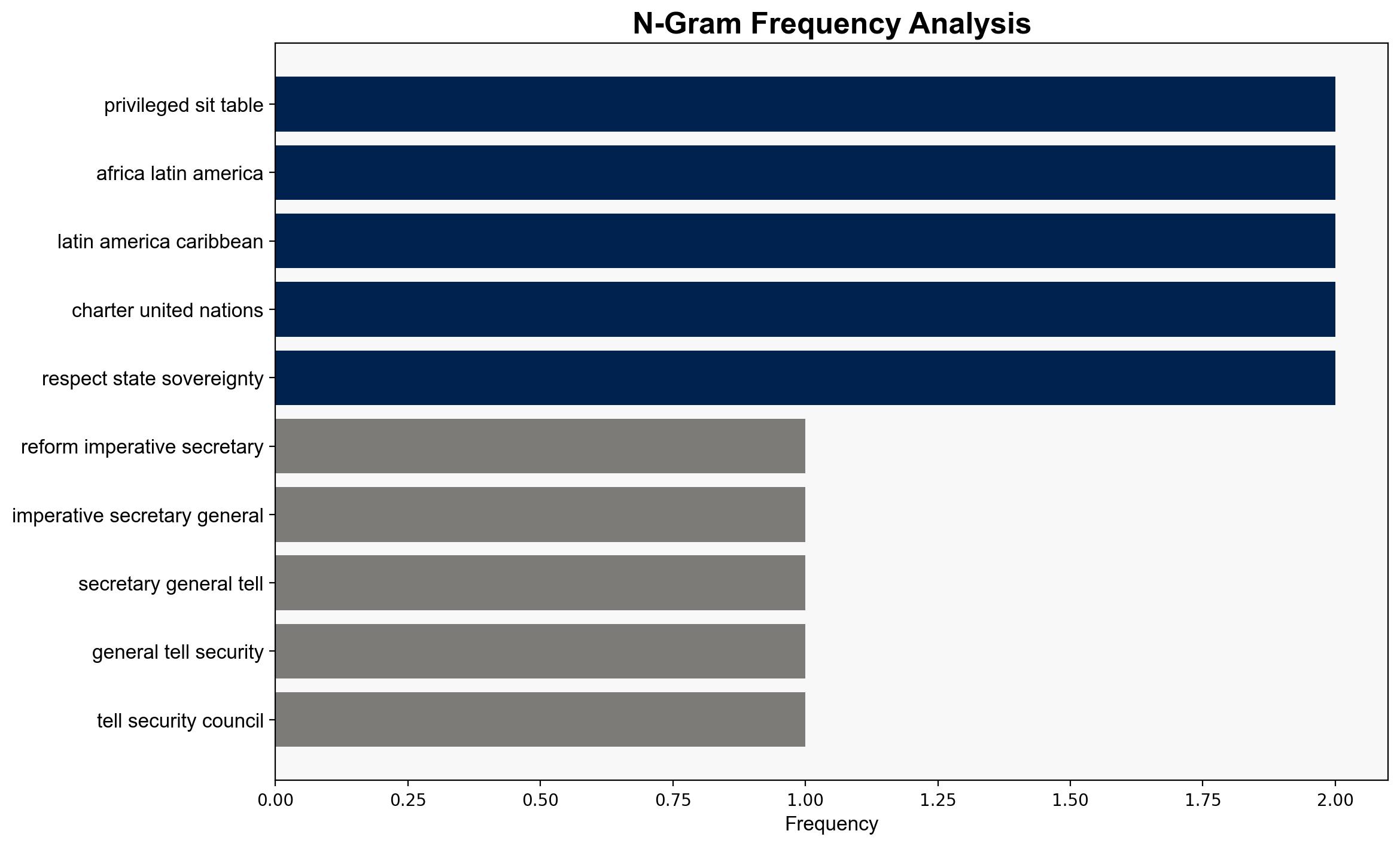Reform ‘Imperative’ Secretary-General Tells Security Council Calling for Expansion of Membership Renewed Commitment to ‘We the People’ – Globalsecurity.org
Published on: 2025-10-25
Intelligence Report: Reform ‘Imperative’ Secretary-General Tells Security Council Calling for Expansion of Membership Renewed Commitment to ‘We the People’ – Globalsecurity.org
1. BLUF (Bottom Line Up Front)
The most supported hypothesis is that the call for reform and expansion of the UN Security Council is driven by a genuine need for increased representation and legitimacy in a multipolar world. Confidence in this hypothesis is moderate due to geopolitical complexities and resistance from current permanent members. Recommended action includes diplomatic engagement with key stakeholders to build consensus on reform, emphasizing the benefits of increased legitimacy and representation.
2. Competing Hypotheses
1. **Hypothesis A**: The call for reform and expansion of the UN Security Council is primarily motivated by a genuine need to enhance representation and legitimacy, particularly for underrepresented regions such as Africa, Latin America, and Asia-Pacific.
2. **Hypothesis B**: The call for reform is a strategic maneuver by certain member states to dilute the influence of current permanent members and shift the balance of power within the UN.
Using the Analysis of Competing Hypotheses (ACH) 2.0, Hypothesis A is better supported by the emphasis on representation and fairness in the source text, aligning with the Secretary-General’s statements on the need for inclusivity and overcoming deadlock. Hypothesis B is less supported due to the lack of direct evidence indicating a coordinated effort to undermine current powers.
3. Key Assumptions and Red Flags
– **Assumptions**: It is assumed that increased representation will lead to greater legitimacy and effectiveness of the Security Council. Another assumption is that current permanent members will resist changes that dilute their power.
– **Red Flags**: Potential cognitive biases include confirmation bias in interpreting the Secretary-General’s motives. Inconsistent data may arise from differing public and private statements by member states.
4. Implications and Strategic Risks
The push for reform could lead to geopolitical tensions, particularly if current permanent members perceive a threat to their influence. There is a risk of deadlock if consensus cannot be reached, potentially weakening the UN’s ability to address global challenges. Economic and cyber dimensions may be impacted if reform discussions lead to shifts in international alliances or resource allocations.
5. Recommendations and Outlook
- Engage in diplomatic efforts to build a coalition of support for reform, focusing on shared benefits of increased legitimacy.
- Scenario Projections:
- Best Case: Successful reform leads to a more representative and effective Security Council.
- Worst Case: Reform efforts stall, leading to increased geopolitical tensions and reduced UN effectiveness.
- Most Likely: Incremental progress with partial reforms, maintaining current power structures but with increased dialogue on representation.
6. Key Individuals and Entities
– António Guterres
– Russian Federation delegate
– United Kingdom delegate
– Denmark delegate
– Slovenia delegate
7. Thematic Tags
national security threats, geopolitical reform, international diplomacy, UN Security Council




